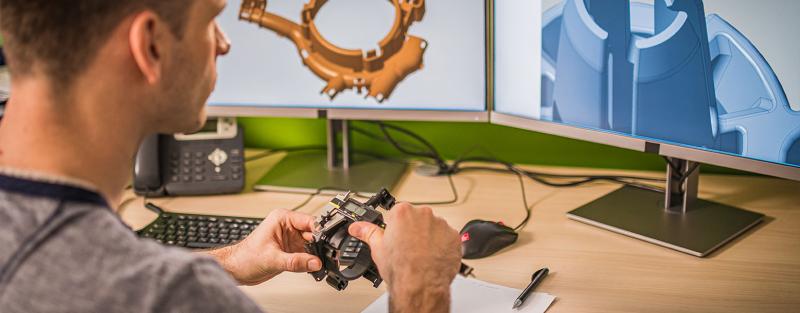Explore the classes that will teach you about computer aided drafting to start or advance your career supporting engineering, construction, architecture and manufacturing teams. The degree requirement classes will teach you various software used by CAD professionals, including AutoCAD, Chief Architect, Revit Architecture and Inventor.
Customize your learning experience by choosing elective classes in an area of focus aligned with an industry you’re interested in, including construction, architecture, civil engineering and mechanical engineering.
Choose electives in subjects including:
- Construction materials
- Surveying
- CAD architecture
- Civil 3D software
- 3D printing
- Machine shop
- Global information systems (GIS)
You can also pursue up to six credits engaged in an independent study focused on a particular aspect of computer aided drafting. An internship is another elective course option. Gain supervised work experience with a business in the community with guidance from your instructor.
General education requirements round out your learning experience and reinforce the soft skills you’ll learn during degree requirement classes. Study PC applications, written and oral communication, mathematics, geography and physics.
